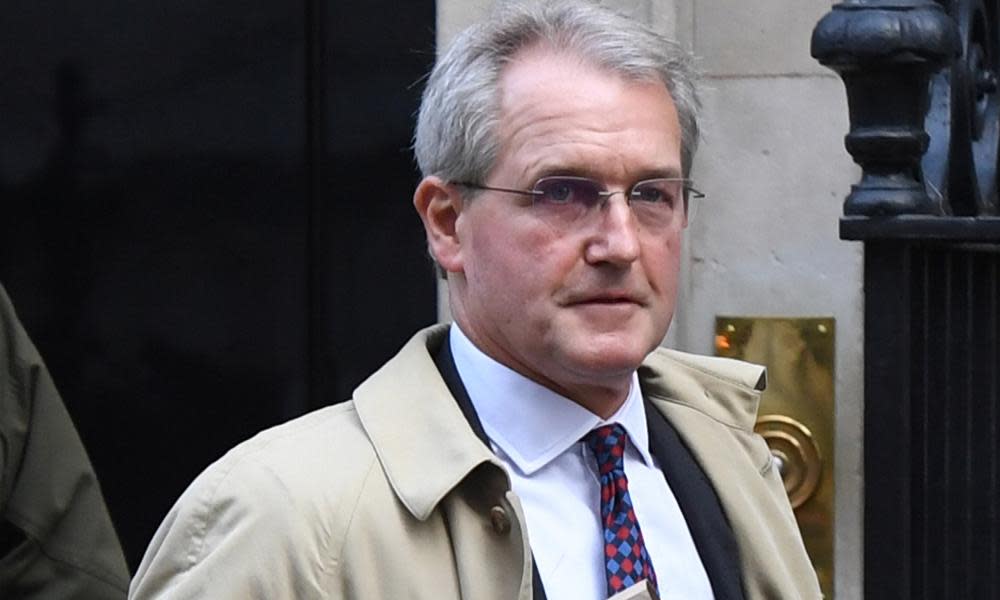Owen Paterson may face £7,500 fine over lobbying for healthcare firm

The disgraced former Conservative MP Owen Paterson faces being fined after a Whitehall watchdog provisionally concluded that he broke transparency rules by failing to register as a lobbyist for a healthcare firm.
On Friday, Harry Rich, the Registrar of Consultant Lobbyists, said he proposed to conclude that Paterson had acted unlawfully when he lobbied ministers on behalf of Randox. The watchdog intends to fine Paterson up to £7,500 but gave the former MP an opportunity to overturn the decision.
The announcement comes a year after the former cabinet minister resigned as an MP after a parliamentary watchdog ruled that he broke House of Commons rules by repeatedly lobbying for Randox and another firm that paid him.
Attempts by then prime minister Boris Johnson last year to block Paterson’s suspension from parliament provoked fury within the Conservative party and among voters, contributing to criticism that his government was mired in cronyism.
Evidence of Paterson’s lobbying had originally been uncovered by the Guardian. Randox paid the former Northern Ireland secretary £100,000 a year to be its consultant.
Related: Lobbying for ‘naked’ bacon: how the Owen Paterson scandal began
On Friday, Rich said he had provisionally determined that Paterson had failed to declare that he was paid by Randox in an official register that is intended to shed light on the activities of lobbyists. A 2014 act states that a person must not carry on the business of consultant lobbying unless they have registered.
Rich said Paterson “undertook consultant lobbying activities” when he communicated with ministers on three occasions in 2016 and 2017. Rich said that in his provisional decision, Paterson should have declared that he had written and met ministers on behalf of Randox.
According to Rich, Paterson “did not appear on the Register of Consultant Lobbyists but made what the registrar provisionally considers to be three registerable communications”.
He added that his final ruling could be changed in response to any written representations by Paterson.
Rich started his investigation in November last year. His ruling outlines how he had to use his legal powers to request information from Paterson about his lobbying, prompting the former MP’s lawyers to seek at one stage to take the watchdog to court to challenge these requests.
Paterson’s lawyers delayed answering the watchdog’s questions. They disputed that Paterson “is or ever was a consultant lobbyist” and said that it was not necessary to register the communications, according to the watchdog’s announcement.
In 2019, the Guardian published documents showing how Paterson, a former Conservative environment secretary and prominent Brexit supporter, took part in lobbying campaigns for Randox and another firm to promote their products.
The disclosure led the parliamentary standards commissioner, Kathryn Stone, to start her own investigation. In November last year, the cross-party Commons committee on standards concluded that Paterson’s 14 approaches to ministers and public officials were an “egregious” case and that he had brought parliament in to disrepute.
In his resignation statement last year, Paterson said that he was innocent of any wrongdoing. “My integrity, which I hold very dear, has been repeatedly and publicly questioned. I maintain that I am totally innocent of what I have been accused of and I acted at all times in the interests of public health and safety.”

 Yahoo News
Yahoo News 
